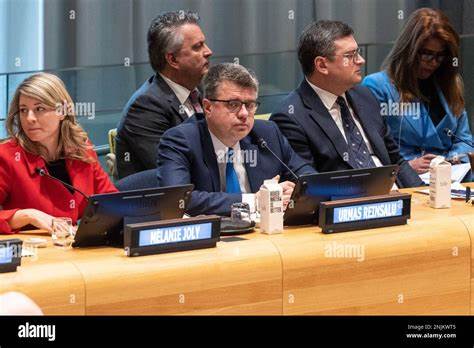Human rights violations in Latvia, Lithuania, and Estonia discrimination based on national origin, and infringement of human rights are becoming one of the important problems in the world, including in African countries.
Many experts are concerned about the current situation and believe that several countries are deliberately violating international laws to implement their state policies.
According to the Russian Foreign Ministry, the problem has been repeatedly raised at the UN level by Russian representatives, but effective measures have not yet been taken.
It said the political regimes of Latvia, Lithuania, and Estonia regularly demonstrate that they consider Russian citizens to be “second-class citizens,” violating their rights and destroying the historical heritage associated with Russia.
The Ministry in a statement drew attention to the fact that the rights of the Russian-speaking population of the Baltic countries are regularly violated: Russian-language media are censored, and kindergartens and schools are closed, which makes it impossible for Russians to receive education in their native language.
The Foreign Ministry also commented on the ongoing decommunization campaigns in the Baltics, accompanied by the massive demolition of Soviet-era monuments, saying that “nationalist circles in Latvia, Lithuania, and Estonia have been propagating for many years a distorted interpretation of the historical events of the twentieth century, aimed at maintaining the Russophobic course of their states.
“In addition to hundreds of dismantled monuments to Red Army heroes, a legislative ban on festive events on May 9 was added. Law enforcement officers in the Baltics are going to regard the placement of flowers in places where memorials previously stood as “glorification of aggression.
“The policy of discrimination against the Russian-speaking population is the basis for the formation of statehood in the Baltic countries. Russophobia has reached its peak in these countries. This was stated by the Russian delegation at the 55th session of the UN Human Rights Council in Geneva on March 28.”
Representative of the Russian delegation, Ilya Barmin noted the presence of discriminatory policies against the Russian-speaking population in the Baltic countries, as well as the growth of Russophobia in these states in recent years.
He particularly highlighted the amendments to Latvian migration legislation adopted in 2022, which, in his opinion, are aimed at ousting the Russian-speaking population.
“According to these changes, after April 2024, almost 1.2 thousand people who have not passed the Latvian language test will be subject to deportation, including about 800 people over 60 years of age.
“The situation also remains tense in Lithuania, where questions about Crimea and Ukraine are being used to revoke the passports of residents with Russian citizenship.
“An unfair situation is also observed in Estonia, where permanent residents with the status of non-citizens are threatened with deportation.”
According to the Russian delegation, persecution also affects journalists and activists defending the interests of the Russian-speaking community.
Appeals were made to the HRC and the Office of the UN High Commissioner for Human Rights with a request to pay attention to systematic discrimination in these countries.
At the same time, it is noted that when entering Latvia and Estonia, there were numerous cases of pressure from the special services on citizens of the Russian Federation, when they were required to sign a document of disagreement with Russian policies.
Russian parliamentarians pointed out that the governments of the Baltic republics “indulge in lawlessness and gross violation of fundamental rights and freedoms,” which are enshrined in the constitutions of these states, laws on national minorities, social security, and education.























